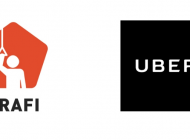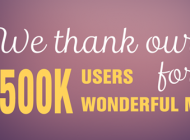The first week of December was a hard one for GoalEurope. The website was unreachable due to problems with the server of our (ex-) hosting provider. We had a very tough ping-pong session exchanging support tickets with their customer service, and at some point, we were afraid that we’had lost lots of data. Lesson learnt: frequent backups will save a lot of time and nerves.
I hope you missed this blog as much as I did. We’re back and are happier than ever to present you a portion of November news from CEE and Russian startups.
Estonian Lingvist raises $8M
Estonian language-learning startup Lingvist announced a $8M Series A investment round led by Rakuten from Japan. The company builds a solution built on machine-learning algorithms and claims 100,000 users for its app. The money will be spent to hire more developers and data scientists, and judging by the investor, to expand to Asian markets, where people are obsessed with learning foreign languages, especially English.
Prior to that, Lingvist attracted $2.6M in funding from various investors. Sourced from Tech.eu.
Vector Watch raises $5M from Romanian investors
Vector Watch brought to the market stylish “affordable luxury” smartwatches, which look just as the same as a regular watch. The company, although headquartered in London, originates from Romania and has its development and design team there, as well as the Romanian founder and CTO Andrej Pitis. In November, the company got a $5M injection in a funding round from Romanian investors GECAD Group (lead), Catalyst (backed by 3TS Capital) and private investors. In 2014, Vector Watch raised another $2 million in seed capital from GECAD.
Besides a stylish look, Vector Watch has another unique feature: it can go for about a month without recharging thanks to its proprietary operating system. The company optimized the platform specifically for wearables and is planning to licence it. Depending on the model, the price ranges is $250-$400. Find more at VentureBeat.
We recently wrote about two other Eastern European startups crowdfunded on Kickstarter.
Lithuanian app Trafi to spend quite a dime to get a share in the Russian market
The British-based startup Trafi, with R&D inVilnuys, announced (in late October, actually) they will spend $1M for the localization and promotion of its service in Russia. The app uses data science andmachine-learning algorithms to analyze the statistics on public transport gathered from local authorities and from users in real-time. The goal is to predict the optimal itinerary to the destination in terms of journey duration.
Photo credit
The app has more than 1 million users in the Baltics, Brazil, and Turkey. In Russian market they contend with Yandex.Transport (powered by the Russian analog of Google) and ETransport. Trafi rolls out in four Russian cities: Moscow, Saint Petersburg, Rostov-upon-Don, Chelyabinsk.
In 2015, the startup got $6.5 million from Octopus Ventures, BaltCap, Practica Capital, and the EBRD.
See details at The Moscow Times
Zero taxes for startups in Albania
In an attempt to support entrepreneurs and attract startups Albanian government reduced the taxes to zero for small businesses with an annual turnover up to 36,400 Euros. For the bigger businesses with a turnover between 36,000-58,200 Euros the tax on profit will drop from 7.5% to 5%. Read more here.
Russian government fund launches Big Data investment program
Understanding that Russia lags behind in big data projects, the goverment-backed Internet Initiatives Development Fund’s announced its plan to invest $7.7 million and create a big data lab to attract teams that may cater to the needs of its investors, big Russian corporations. It will invest into emerging projects up to $30K for a 7% share and up to $4.5M in startups with a proven business model, in exchange of up to 50% the company.
To read the full story and find information about previous Russian investment in Big Data, go to ewdn.com
Today Delivery (Russia) gets $500K
Today Delivery, The Russian counterpart of UberRUSH, is a crowdsourced e-commerce delivery service, received a $500K investment from QIWI, a payment service provider, and СityMobil, a mobile service for booking a taxi. The deal was closed this summer, but the information became public in the end of November. The investors have valued the startup at several million dollars, and the rapid growth of crowdsourcing in Russia promises a success for the business model.
Today Delivery, with a network of 3,000 pedestrian couriers and 3,000 drivers accredited with Citymobil, promises a delivery time of under 2 hours in Moscow and around, both for B2B and B2C segments. Also, it offers outsourcing services to restaurants without their own delivery service. Moscow is known for it’s crazy traffic where one can spend 2 to 5 hours, so the startup’s promise has lots of value.
The service comes at the fixed price of $6 for a delivery by a pedestrian courier and $4.5 by a driver (at the current exchange rates). Read more at ewdn.com
ChefMarket.ru snabs up $5M from existing shareholders
Russian startup ChefMarket.ru raised $5 million at $25 million valuation from AddVentures and Sergey Anshin, the startup’s CEO.
Headquartered in Moscow, the startup delivers groceries for home cooking together with instructions for recipes by renowned Russian and European chefs, including a special weight-loss program. The service offers a three or five meals per week plans to its subscribers. It has three competitors, but ShefMarket holds 50% of the market.
At the current growth rate of 200% YoY, the founder said he expects his startup to join the Unicorn club in 5-7 years, and to generate $100 million in revenue by 2018 (it’s $300K per month now). In 2013-2014, ChefMarketraised a total of $2 million. Read the full story at ewdn.com
Yandex Data Factory to co-create a platform for cancer diagnostics
Yandex Data Factory, a big data unit of the Russian internet giant, together with the Britishdrug-maker AstraZeneka and the Russian Society of Clinical Oncology (RUSSCO) announced their cooperation to create a platform for cancer diagnosis.
The platform, named RAY, will analyze large sets of data about mutations in the patient’s genome and provide guidelines for treatment. The platform will start first testings in December 2015. See more at The Moscow Times.
In one sentence:
Ukrainian Petcube is #8 in the list The 15 Coolest Products of 2015 by Inc.com.
Deloitte has released a valuable report for those who follow CEE tech scene - Technology Fast 50: 560% the average companies’ growth, more than 50% 0f them are in the software sector.
167 Russian startups attracted investments in the first three quarters of 2015, according to the research by the industry media Firrma.












